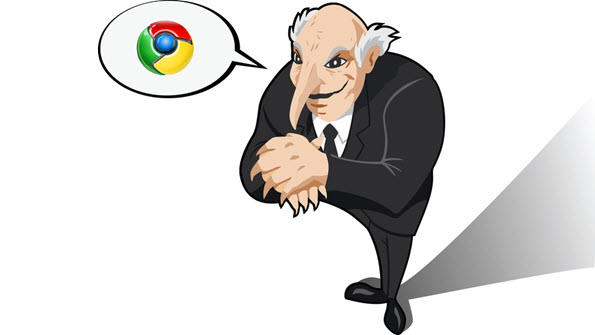Chrome 32 Turns Windows 8 PCs into a ChromebookChrome 32 Turns Windows 8 PCs into a Chromebook
On Tuesday, Google unveiled its latest Chrome browser update, pushing the version to number 32. Chrome 32 brings new features and functions, of course, but there's one specific piece that is most interesting, and to me, really highlights Google's evil genius.
January 15, 2014

I've written about my thoughts on the Chromebook recently, equating it to modern day Snake Oil. In essence, Google and its hardware partners have bumped up production and released a series of cheap laptops powered by Google's ChromeOS. ChromeOS is in its infancy and really is a bit ahead of its time, but consumers are being tricked into the buying the devices, thinking they are "real PCs" when they're not. Well, by industry definition, they are PCs, but by consumer standards and definition, they are not.
Basically, Chromebooks are powered by an Internet browser, requiring constant Internet connectivity for the majority of operations. Software usage is all browser-based, too. For example, if a person wants to create a Microsoft Word document or work with an Excel spreadsheet, they must use the web version of Office 365. The device does have its uses, though, but those uses are very specific and very limited.
Prior to IE10 releasing with Windows 8, I used Chrome religiously. IE8 and IE9 were absolutely horrid products. Firefox has become too bloated and too slow to matter anymore. Safari is probably the most incompatible of all the modern browsers, and while Opera still remains my favorite, Chrome simply worked better across the entire web. But, I still had that nagging feeling that I was doing something wrong by using Chrome. Google is not my favorite company. Their business practices are questionable, their privacy policies are sordid, and their hunger for public data and information makes them a potential enemy of all. I just felt dirty. So, I was glad when IE10 (and especially IE11) released. Microsoft finally improved Internet Explorer to make it desirable.
Add to that, Chrome is a PC memory hungry beast. If you keep multiple tabs open all day long, Chrome will consume PC resources until processing power is brought to a crawl by the end of the day. I spent a few days trying to figure out why my high-powered PC ran like a 386sx on Windows XP, and finally pinpointed Chrome as the culprit. In addition, Chrome would install unnecessary Google services without warning. A few of those have been reported to provide no other value than to secretly send PC usage data and user habits back to Google.
On Tuesday, Google unveiled its latest Chrome browser update, pushing the version to number 32. Chrome 32 brings new features and functions, of course, but there's one specific piece that is most interesting, and to me, really highlights Google's evil genius.
Chrome 32 enhances its ability to work within the Windows 8 Metro-like UI, but it does it in a way that attempts to replace the Windows 8 experience. When Chrome is set to the default web browser on Windows 8 and executed to run as a modern app, the appearance is…familiar. Those that own a Chromebook will recognize the interface almost immediately. In essence, when running Chrome 32 in Metro-mode, there's very little difference between the browser and ChromeOS desktop. Browser tabs run in multiple windows and there's even a Windows 7-type taskbar with a pseudo Start button at the bottom left.
Essentially, by installing Chrome 32 and running it in Metro-mode, you have just turned your Windows 8 PC into a Chromebook. However, as much as I dislike their reasons for doing this (Chrome 32 is basically a Trojan horse), Google has provided an extremely good and workable ChomeOS shell. For Windows 8 users that are deep-rooted in Google services, this is an excellent implementation and I'm positive they'll find value right away. I wish I could say I hate Chrome 32, but I don't.
And, there's the rub. Google has just put ChromeOS access squarely in front of users when Windows 9 is being heavily touted as a complete revamp of Windows 8, due to Microsoft's most current OS missing sales and usage targets. Some have already labeled the Windows 8 experiment as a failure.
As I've noted, a Chromebook is a failure in itself for a few reasons, but most importantly because it can't do what users are comfortable doing. But, by installing Chrome 32 on a Windows 8 PC, they can now have the best of both worlds. They can run Chrome, run Chrome apps, experience the ChromeOS desktop, and then switch back and run their favorite Windows apps like Word, Excel, and others.
Don’t doubt for a second that this is Google's plan. The intent is very clear. Did I mention Evil Genius?
This is Google's perfect opportunity to turn Windows 8 users into avid ChromeOS users. And, based on what I've seen so far in Chrome 32, they may just be able to do it. Sad and glorious all at the same time.
Microsoft should be very afraid.
About the Author
You May Also Like






.jpg?width=700&auto=webp&quality=80&disable=upscale)
